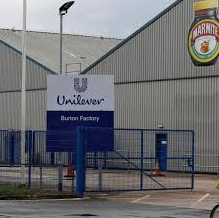
Archbishop of Canterbury highlights the historic and inclusive nature of the event.
The Archbishop of Canterbury has described the coronation of King Charles III and Queen Camilla as “a profound celebration of our nation’s diversity,” blending tradition, joy, and historic significance.
Ahead of the ceremony, Most Revd Justin Welby emphasised the event’s dual nature as both a spiritual reflection and a moment of national unity. He stated, “This coronation is a beautiful and historic occasion, filled with sacred wonder and an invitation to embrace new hope.”
The Archbishop will lead the service, including the significant task of anointing and crowning the King and Queen during the globally televised event. For the first time, representatives from the country’s diverse faith communities will actively participate. Sikh, Hindu, Muslim, and Jewish peers will present items of regalia that lack Christian symbolism, marking a significant step toward inclusivity.
Other groundbreaking elements include the use of Welsh, Scottish Gaelic, and Irish Gaelic in the ceremony, as well as the “Homage of the People,” inviting viewers worldwide to swear allegiance to the King. Faith leaders from Jewish, Hindu, Sikh, Muslim, and Buddhist communities will jointly deliver a message to the King in the Abbey following the service.
Reflecting on the ceremony’s broader significance, Archbishop Welby remarked, “The coronation connects us to our Christian heritage, from the sacred anointing ritual to the use of the sixth-century St Augustine Gospels, uniting us with our national story.”
King Charles III will become the 40th monarch crowned at Westminster Abbey, continuing a tradition dating back to William the Conqueror in 1066. The ceremony will see the iconic St Edward’s Crown placed upon his head, symbolising his role in the nation’s history.
The Archbishop also called on people to reflect during the occasion, stating, “This is not merely a moment of history. It is an opportunity to hear words of hope and to consider how we, like the King and Queen, can dedicate our lives to the service of others.”
He concluded, “I pray this event inspires us to recognise the beauty in our diversity and embrace both ancient wisdom and the promise of the future, united in purpose and hope.”


















Comments
Hello world!
Pic of the week: Sunset at margate beach
The first day’s journey was through the pink fields
The first day’s journey was through the pink fields
The first day’s journey was through the pink fields